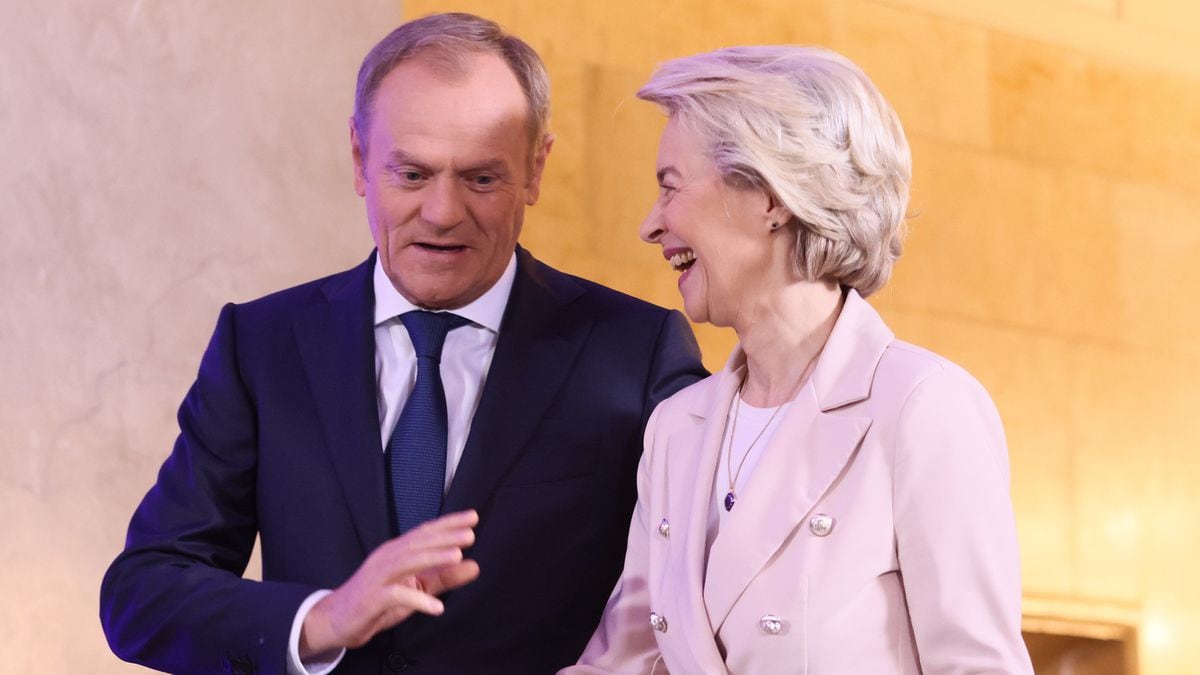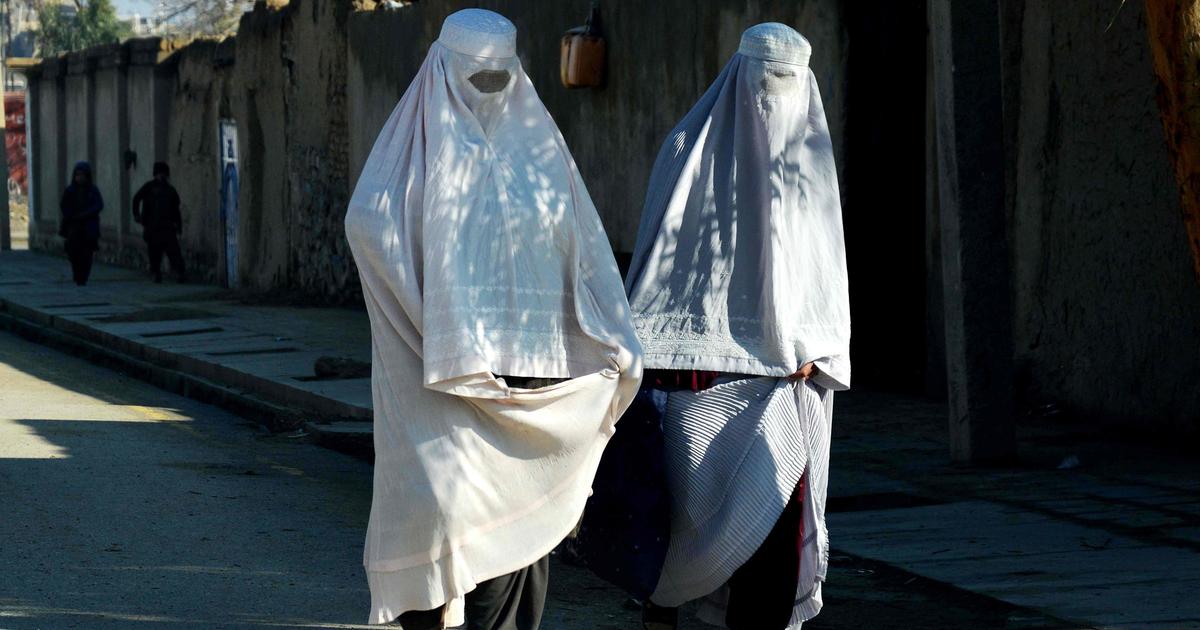Enlarge image
Judge Igor Tuleya has become a symbolic figure of resistance against the Kaczyński government.
Photo: Anna Liminowicz / DER SPIEGEL
Igor Tuleya has spent a quarter century serving the Polish state.
As a judge in Warsaw, he has passed judgment on murderers, mafia dons and drug smugglers.
These days, though, he spends most of his time working on his own legal defense.
The national conservative government in the hands of Jarosław Kaczyński, the head of the PiS party, has singled out Tuleya as an enemy of the state.
Government prosecutors have opened seven disciplinary proceedings against him and have also suspended Tuleya's immunity as a judge so that they can prosecute him.
Polish Justice Minister Zbigniew Ziobro claims that Tuleya exceeded his authority when he allowed journalists into the courtroom during a court ruling against PiS in 2017. The truth is, though, that the judge has probably just become too inconvenient for leaders in Warsaw because of verdicts he has issued against the governing party on multiple occasions.
The PiS has systematically tightened its hold on the judiciary since it came to power in 2015, it's second time leading the government since 2005. It has brought public prosecutors under its control, forced the Supreme Court to toe the line and created a system that allows the government to punish disagreeable judges like Tuleya.
Disciplinary proceedings are now underway against several dozen Polish judiciary officials.
Sometimes, just issuing a ruling that isn't to Kaczyński's or Ziobro's liking is enough for a judge to receive a demotion, a mandatory transfer or a suspension from service.
It is a crisis the likes of which has never been seen in the European Union before - not even in Bulgaria or Hungary, where courts are also under pressure.
With its attack on the rule of law, PiS is openly challenging the countries and institutions of the EU.
The European Court of Justice ruled in July that the Polish disciplinary regime violates European law.
The European Commission, the EU's executive branch, has initiated several infringement proceedings against Poland.
If Warsaw doesn't repeal parts of the judicial reform by August 16 or introduce corrections, Brussels has the right to initiate sanctions against the country.
The Commission is also holding back the transfer of money from the EU corona recovery fund for the time being.
Kaczyński has hinted that he wants to accommodate the EU to some extent.
But how the power struggle will end remains an entirely open question.
Just this week, PiS passed a controversial law that could severely restrict the freedom of media companies.
For the EU, the dispute with the Polish government is considerably more dangerous than Brexit, because Kaczyński is on the verge of establishing an autocracy in the heart of Europe.
If he succeeds, the EU's legal union would be history.
It could even devolve into a club of democracies, semi-democracies and dictatorships.
There would no longer be any room for government critics like Tuleya in Poland.
On a recent morning in August, Tuleya is sitting in the offices of a Warsaw-based NGO, a lanky 51-year-old in jeans and sneakers.
As he recounts his conflict with the government in a low voice, he repeatedly shakes his head, pauses and smiles incredulously, as if he can't believe what has happened to him in the past few months.
Tuleya has become a symbolic figure of resistance against the Kaczyński government. He appears on television and at rallies to promote the independence of the judiciary. "I didn't seek this role," he says. "I didn't want to be in the public eye. But I have no other choice. "
Tuleya was born in Łodź, a working-class city in central Poland, and had just finished school when the Soviet Union collapsed. His friends all gravitated toward business, banks and big law firms, seeking to make money. But Tuleya wanted to help rebuild the state. As a judge, he believed he could ensure that justice prevailed. Tuleya began his career at the local court in Warsaw and was later promoted to the District Court, one of the most important institutions in the country. He says he worked too much and had an average salary, at best. But he was happy. He felt like he was doing something meaningful. That changed when Kaczyński won the parliamentary election for the first time in 2005.
Jarosław Kaczyński had been active in the opposition during the Soviet era, and he helped bring down the dictatorship as a confidant of Solidarnosc leader Lech Wałęsa.
After the fall of communism, he and his twin brother built PiS up as a mainstream, center-right conservative party.
PiS stands for "law and justice."
The fact, though, is that Kaczyński is ready to bend the law whenever it benefits him politically. After his election success in 2005, he installed Zbigniew Ziobro as justice minister. The head of the right-wing extremist party Solidarna Polska, Ziobro is called "Sheriff" by his supporters.
It didn't take long before Tuleya began clashing with Kaczyński's government.
In 2007, Ziobro ordered the arrest of Janusz Kaczmarek, who had recently been dismissed as interior minister, allegedly for obstruction of justice.
In fact, though, Ziobro was likely just trying to remove an internal party opponent.
Tuleya ruled that Kaczmarek's arrest was unlawful.
It's at that moment, he believes, that he definitely ended up in the PiS crosshairs.
Tuleya benefited from the fact that the Kaczyński government collapsed soon afterward and was replaced by the liberal Civic Platform of future European Council President Donald Tusk.
With Tusk as its leader, Poland undertook social and pro-European reforms, but also an economic liberalization program that widened the gap between the rich and the poor.
PiS denounced the dismantling of the welfare state and also blasted the EU's refugee policy, helping ensure its return to power in autumn 2015.
But by 2015, Kaczyński had become a different person than he was in 2007. First, he had lost his twin brother Lech in a plane crash in 2010, which made him even more distrustful and uncompromising.
Second, he had learned from the mistakes of his first tenure at the top.
This time, he would leave nothing to chance.
Kaczyński initially chose not to take a government office, instead steering the country's fortunes from behind the scenes as the PiS party boss.
Immediately after the government was sworn in, he and Justice Minister Ziobro set about restructuring the judiciary.
Ziobro appointed himself attorney general in 2016, a move that gave him the power to demote any prosecutor in the country without giving a reason.
Hundreds of civil servants lost their posts.
One of those is Katarzyna Kwiatkowska, 53, then a prosecutor at the Court of Appeals in Warsaw.
Kwiatkowska shares her story on an August afternoon in a café in downtown Warsaw.
She chooses her words carefully, but even so, she says that Poland under Kaczyński and Ziobro is at best still only half a democracy.
In 2007, Kwiatkowska was the rapporteur in the case Ziobro brought against former Interior Minister Kaczmarek.
She later testified against PiS in a parliamentary investigative committee looking into the case.
Kwiatkowska is certain that she was forcibly transferred to a Warsaw district court by Ziobro because of that appearance.
Unlike many colleagues, though, she rejected her demotion.
Kwiatkowska joined Lex Super Omnia (The Law Above All), an association of prosecutors that has been fighting against the purges taking place in the judiciary.
Prosecutors then sidelined her by transferring her to a provincial court in central Poland.
When Kwiatkowska still didn't let up and denounced the dismantling of the rule of law in an interview with the daily
Gazeta Wyborcza
, her superior, the deputy attorney general, sued her for the equivalent of 55,000 euros for purported defamation.
"Ziobro is abusing the justice system for his own personal vendetta," she says.
Kaczyński and Ziobro have intimidated the prosecution with changes in personnel and sanctions.
But to really be able to control the judiciary, they had to go directly to the courts.
The pair first moved to change the process governing the appointment of members of the National Judicial Council, the powerful body of judges that decides on the appointment and dismissal of all judges in the country.
Instead of the judiciary, PiS now decides, with its parliamentary majority, who is appointed to the National Judicial Council.
In addition, they installed a Disciplinary Chamber of the Supreme Court, the members of which have the power to sanction members of the judiciary at the government's behest.
With the disciplinary regime, the government now has a powerful tool at its disposal for persecuting opponents.
Igor Tuleya experienced firsthand Ziobro's willingness to resort to disciplinary procedures to harass critics.
Having already turned the PiS against him by way of earlier rulings, he seems to have definitely become a target of Ziobro's in 2017. Tuleya had instructed the prosecutor's office to investigate PiS members over a possible rigged budget vote in parliament.
In response, Ziobro had disciplinary proceedings opened against Tuleya, ostensibly not because of the verdict itself, but because he had allowed the media to attend the proceedings.
This fall, the Disciplinary Chamber lifted Tuleya's immunity.
He has been suspended from his position and his office at the court has been cleared out.
Tuleya has so far refused to comply with the prosecution's subpoenas because he believes the proceedings are illegal.
If convicted of assumption of authority, he could face up to two years in prison.
His colleague Waldemar Żurek, a judge in Krakow and former spokesman for the National Judicial Council, is facing a total of 11 disciplinary proceedings.
In recent years, he has repeatedly denounced the politicization of the judiciary in public, in response to which the government unleashed anti-corruption investigators on him.
They combed through all of Żurek's financial records without finding any evidence of wrongdoing.
Investigations are often accompanied by smear campaigns in the media.
In the case of Żurek, TV stations and newspapers close to PiS reported extensively on his divorce, falsely claiming that the judge refused to make child support payments for his son.
Internet sites advised him as a "disgrace to Poland."
Some claimed Tuleya was a communist and a traitor to the country.
In some cases, confidential information about judges has been leaked directly from the Justice Ministry to pro-PiS media outlets.
That kind of incitement has led to a situation in which some poles actually regard judges as enemies of the people.
Tuleya says he regularly receives hate mail and death threats.
Unsigned letters containing white powder have been sent to his office twice, and each time, the entire court had to be evacuated.
The tires of Żurek's car have been slashed, and he once even found that his brakes had been tampered with.
"The government has put us on a hit list," he says.
Kaczyński would probably prefer to abolish the separation of powers altogether and provide himself with a system in which he can govern with a parliamentary majority without taking the opposition into account.
Members of the opposition warn that in the future, he and Ziobro could try to harass people with different views - women's rights or LGBTIQ activists, for example - using the judiciary.
Meanwhile, they could also use the judiciary reform to shield themselves from investigation.
The case of the Austrian real estate entrepreneur Gerald Birgfellner illustrates this well.
Birgfellner claims to have been commissioned by Kaczyński in 2017 to build a double skyscraper for PiS in Warsaw as a commemoration for his brother Lech.
A little over a year later, Kaczyński withdrew from the project, allegedly without paying Birgfellner's fees, a claim the PiS party boss denies.
The bills are for the equivalent of 1.3 million euros.
The two had never signed a formal contract.
Birgfellner hired as his lawyer Roman Giertych - once the deputy prime minister under Kaczyński and now a PiS critic.
Giertych demanded that prosecutors question Kaczyński in the case, but to date, that still hasn't happened.
Instead, it is Birgfellner who has been questioned several times.
Last fall, officers with the intelligence service of the country's anti-corruption office then arrested Giertych, purportedly on suspicions of money laundering.
Investigators searched the home and office of the lawyer, who then collapsed and had to be hospitalized.
One day later, a court in Poznan ordered his release, saying the prosecution hadn't provided enough evidence to justify his detainment.
For a long time, the attack on the independence of the judiciary did little to hurt PiS politically.
To many poles, the decline of rule of law seemed like a rather abstract problem.
They were pleased that PiS had increased pensions and introduced a monthly child benefit payment.
Sylwia Gregorczyk-Abram, one of the founders of the Wolne Sądy (Free Courts) initiative, believes that anger is slowly growing among civilians over Kaczyński's style of governing.
Gregorczyk-Abram has worked as a lawyer for the international law firm Clifford Chance.
These days, though, most of the work she is doing is for Wolne Sądy.
Gregorczyk-Abram and her fellow campaigners have recruited prominent actresses and musicians for their campaign to protect the rule of law.
Last winter, they attracted thousands of people to a protest against the PiS judicial reform in Warsaw.
Gregorczyk-Abram says the open confrontation with the EU has further alarmed many people in recent weeks.
Some even fear Poland's creeping exit from the EU, "Polexit."
The Poles have an ambivalent relationship with Europe.
To be sure, the vast majority viewed EU accession in 2004 as progress, and billions in aid from Brussels has fueled the country's rapid economic upswing in recent years.
At the same time, there is widespread sentiment among Poles that they are not being taken entirely seriously by the EU.
Directives from Brussels, in migration policy, for example, are often perceived as being too paternal.
Kaczyński and Ziobro only narrowly won the last election.
And this week, they parted ways, with their coalition partner after a lengthy dispute.
From now on, they will have to rely on organizing constantly revolving majorities in parliament with different parties to govern.
It's also unclear how far the Poles are willing to go in their dispute with the EU. Whereas Ziobro stressed last week that they would not be blackmailed by Brussels and would leave the EU if necessary, Kaczyński has announced that the Disciplinary Chamber will be abolished in its "current form." What he did not say, however, is whether it would be replaced by a new body or if his government would abide by the European Court of Justice rulings in the future.
In recent years, the PiS government has repeatedly signaled its willingness to compromise with Brussels only to then turn around and further hollow out the rule of law.
ECJ President Koen Lenaerts decided a "structural breakdown" in the rule of law in the July ruling on Polish judicial reform. Back in 2017, a commission with the Council of Europe compared Poland's judiciary with that of the former Soviet Union.
That's why experts like Gerald Knaus, the German chair of the think tank European Stability Initiative, are warning the European Commission against entering into any hasty compromises with Warsaw.
He recommends slapping annual sanctions of 1 percent of gross domestic product if member states ignore ECJ rulings on the rule of law, which in Poland's case would amount to around 5 billion euros.
He argues that this is the only way to prevent Poland from drifting further down the path of authoritarianism.
Wolne Sądy initiator Gregorczyk-Abram is also calling on the EU to stand firm against the PiS.
Ultimately, she believes, only pressure from Brussels can force Kaczyński to relent in the long run.
"As Poles, we view ourselves as being part of Europe," she says. "We don't want to live in a state like Russia."















